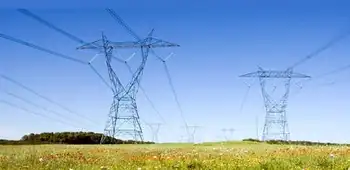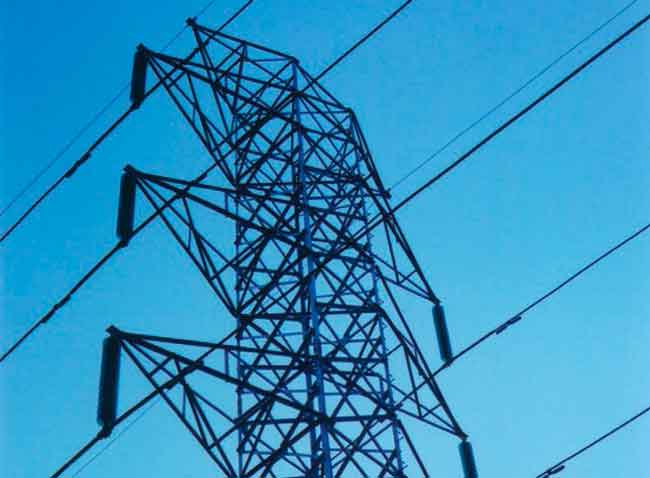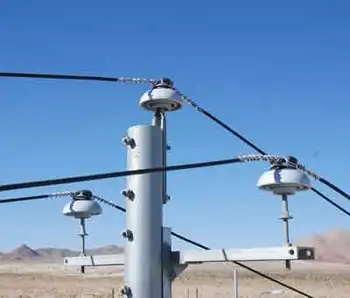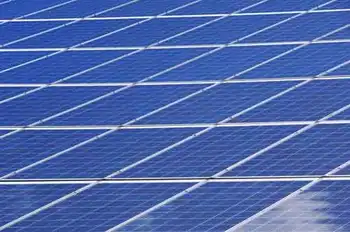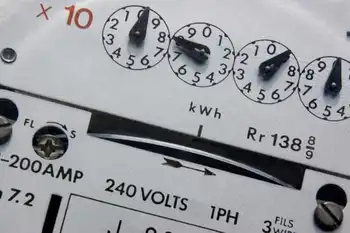Hydro-Québec Northeast Clean Energy Transmission delivers surplus hydropower via HVDC interconnections to New York and New England, leveraging long-term contracts and projects like CHPE and NECEC to support carbon-free goals, GHG cuts, and grid reliability.
Key Points
An initiative to expand HVDC links for Quebec hydropower exports, aiding New York and New England decarbonization.
✅ 37,000 MW hydro capacity enables firm, low-carbon exports
✅ Targets NY and NE via CHPE, NECEC, and upgraded interfaces
✅ Backed by long-term PPAs to reduce merchant transmission risk
With roughly 37,000 MW of installed hydro power capacity, Quebec has ample spare capacity that it would like to deliver into Northeastern US markets where ambitious clean energy goals have been announced, but expanding transmission infrastructure is challenging.
Register Now New York recently announced a goal of receiving 100% carbon-free energy by 2040 and the New England states all have ambitious greenhouse gas reduction goals, including a Massachusetts law requiring GHG emissions be 80% below 1990 levels by 2050.
The province-owned company, Hydro Quebec, supplies power to the provinces of Quebec, Ontario and New Brunswick in particular, as well as sending electricity directly into New York and New England. The power transmission interconnections between New York and New England have reached capacity and in order to increase export volumes into the US, "we need to build more transmission infrastructure," Gary Sutherland, relationship manager in business development, recently said during a presentation to reporters in Montreal.
TRANSMISSION OPTIONS
Hydro Quebec is working with US transmission developers, electric distribution companies, independent system operators and state government agencies to expand that transmission capacity in order to delivery more power from its hydro system to the US, as the province has closed the door on nuclear power and continues to prioritize hydropower, Sutherland said.
The company is looking to sign long-term power supply contracts that could help alleviate some of the investment risk associated with these large infrastructure projects.
"It`s interesting to recall that in the 1980s, two decade-long contracts paved the way for construction of Phase II of the multi-terminal direct-current system (MTDCS), a cross-border line that delivers up to 2,000 MW from northern Quebec to New England," Hydro Quebec spokeswoman Lynn St-Laurent said in an email.
Long-term prices have been persistently low since 2012, following the shale gas boom and the economic decline in 2008-2009, St-Laurent said. "As such, investment risks are too high for merchant transmission projects," she said.
Northeast power market fundamentals "remain strong for long-term contracts," on transmission projects or equipment upgrades that can deliver clean power from Quebec and "help our neighbors reach their ambitious clean energy goals," St-Laurent said.
NEW ENGLAND
In March 2017 an HQ proposal was selected by Massachusetts regulators to supply 9.45 TWh of firm energy to be delivered for 20 years. HQ`s proposal consisted of hydro power supply and possible transmission scenarios developed in conjunction with US partners.
The two leading options include a route through New Hampshire called Northern Pass and New England Clean Energy Connect through Maine.
The New Hampshire Site Evaluation Committee in March 2018 voted unanimously to deny approval of the $1.6 billion Northern Pass Transmission project, which is a joint venture between HQ and Eversource Energy`s transmission business. Eversource has been fighting the decision, with the New Hampshire Supreme Court accepting the company`s appeal of the NHSEC decision in October.
Briefs are being filed and oral arguments are likely to begin late spring or early summer, spokesman William Hinkle said in an email Tuesday.
After the Northern Pass permitting delay, Massachusetts chose the New England Clean Energy Connect project, which is a projected 1,200 MW transmission line, with 1,090 MW contracted to Massachusetts, leaving 110 MW for use on a merchant basis, according to St-Laurent.
NECEC is a joint venture between HQ and Central Maine Power, which is a subsidiary of Avangrid, a company affiliated with Spain`s Iberdrola. The NECEC project has received opposition from some environmental groups and still needs several state and federal permits.
NEW YORK
"The 5% of New York`s load that we furnish year in and year out ... is mostly going into the north of the state, it`s not coming down here," Sutherland said during a discussion at Pace University in New York City in 2017.
One potential project moving through the permitting phase, is the $2.2 billion, 1,000-MW Champlain Hudson Power Express transmission line being pursued by Transmission Developers -- a Blackstone portfolio company -- that would transport power from Quebec to Queens, New York.
Under New York`s proposed Climate Leadership Act which calls for the 100% carbon-free energy goal, renewable generation eligibility would be determined by the Public Service Commission. The PSC did not respond to a question about whether hydro power from Quebec is being considered as a potential option for meeting the state`s clean energy goal.
Related News






